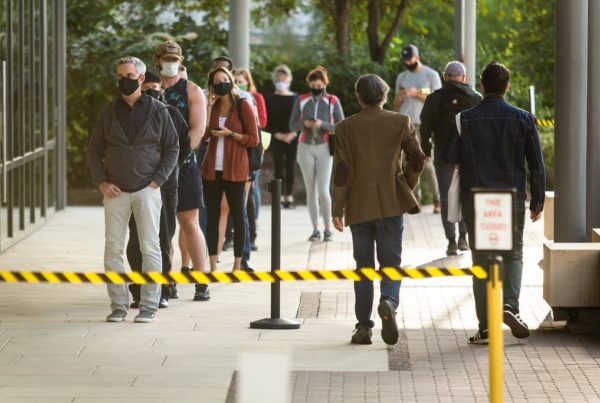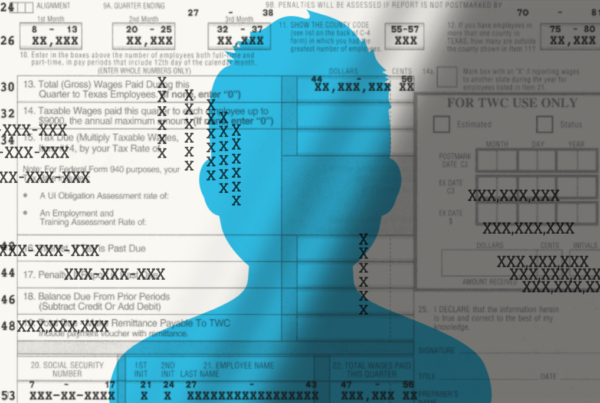Housing courts in Texas are no longer authorized to halt evictions in compliance with a national moratorium, after the Texas Supreme Court this week let statewide protections for renters expire — even as the Biden administration renewed the moratorium through the end of June.
Back in the fall, the state Supreme Court gave local judges emergency guidance on how to to apply the Center for Disease Control and Prevention’s federal moratorium on evictions. Because different judges interpreted the federal order differently, the state rules were a saving grace for many renters who may have otherwise lost their homes.
Now those rules are gone.
“At this point, the only protection we have is from the CDC,” said Dana Karni, managing attorney with Lone Star Legal Aid. “The floodgates have now been opened.”
With the expiration of the court’s 34th emergency order, the Texas Supreme Court is lifting provisions that applied the federal moratorium to Texas courts. That impacts not only newly filed eviction cases, but also cases that were already on hold over the months that the CDC moratorium has been in effect.
The Texas Justice Court Training Center — the agency responsible for training the judges who preside over eviction courts — is now advising judges to set new hearings for old cases that are already paused by the CDC order, to determine if landlords want to move forward with those evictions.
“I think that it’s fair to say that the entire state is now under threat of massive eviction,” Karni said. “The fact that the Texas Supreme Court emergency order is not being renewed is definitely a blunt blow to tenants and tenant protections.”
Even though the federal order is staying the same, Texas renters are a lot more likely to get evicted now, Karni said.
Until now, courts were required to include a copy of the CDC form that stops an eviction case when they sent a citation to renters. But now, according to guidance from the Texas Justice Court Training Center, courts should not to include the form anymore, because “there is no role for the justice court in this process.”
“If ever there was a time that the disparity among the various courts handling of evictions was going to come to light, it’s going to be now,” Karni said.
When Harris County Judge Israel Garcia got the news Thursday morning that the Texas Supreme Court order was expiring, he said it felt like his legs got cut off from under him.
“Unfortunately, a lot of people who had protection are going to lose their protection and are going to find themselves involved in an accelerated eviction trial and out on the street again,” Garcia said.
So far, Garcia, who was elected in November, has kept his promise not to hear eviction cases. But now he’s unsure what to do next — he said he no longer has the authority to follow the federal order.
“Monday we’re going to sit around and look at the cases and see what we have and what we can do,” Garcia said, “and see if we can find something further for guidance on this, because it’s very confusing.”
Texas landlords can still face criminal penalties under the federal CDC order if they evict a tenant who’s eligible for protection.
But Karni said that enforcement isn’t actually happening — she hasn’t heard of a single case of a landlord being prosecuted.
According to a press advisory from the Federal Trade Commission, both the FTC and the Consumer Financial Protection Bureau “will be monitoring eviction practices – particularly by major multistate landlords, eviction management services, and private equity firms – to ensure companies are complying with the law.”
















